Reports
Scalr reports provide administrators with visibility into information across environments and workspaces so that they can easily find information about outliers, non-compliant Terraform or OpenTofu deployment, etc in a single place. This will save you time from searching through lower-level objects like workspaces and runs. Each report has drill-down capabilities as well to make them very actionable. All reports can be found at the account or environment scope by clicking on observability and then reports.
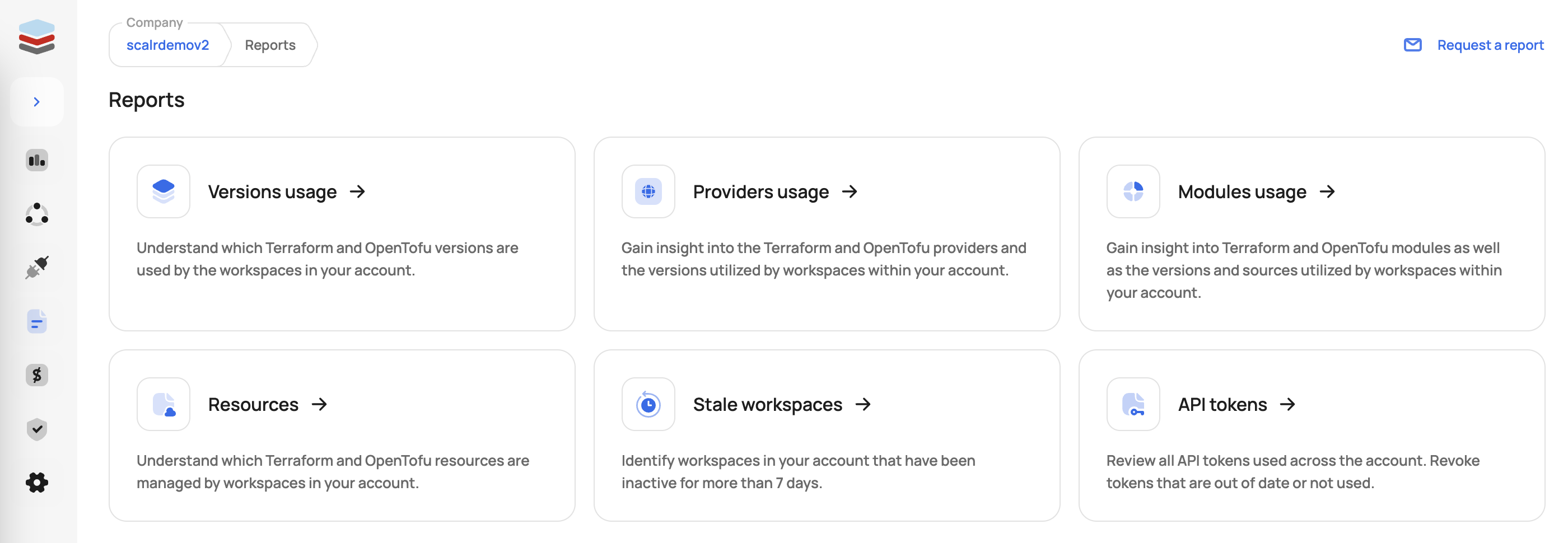
See more here:
Terraform & OpenTofu Versions Report
The Terraform versions report, available within the account scope or each environment, shows you which Terraform versions are being used to create your state files across all of your environments. This is very helpful when you are trying to phase out or standardize on a specific Terraform version. Get your real-time status updates here.
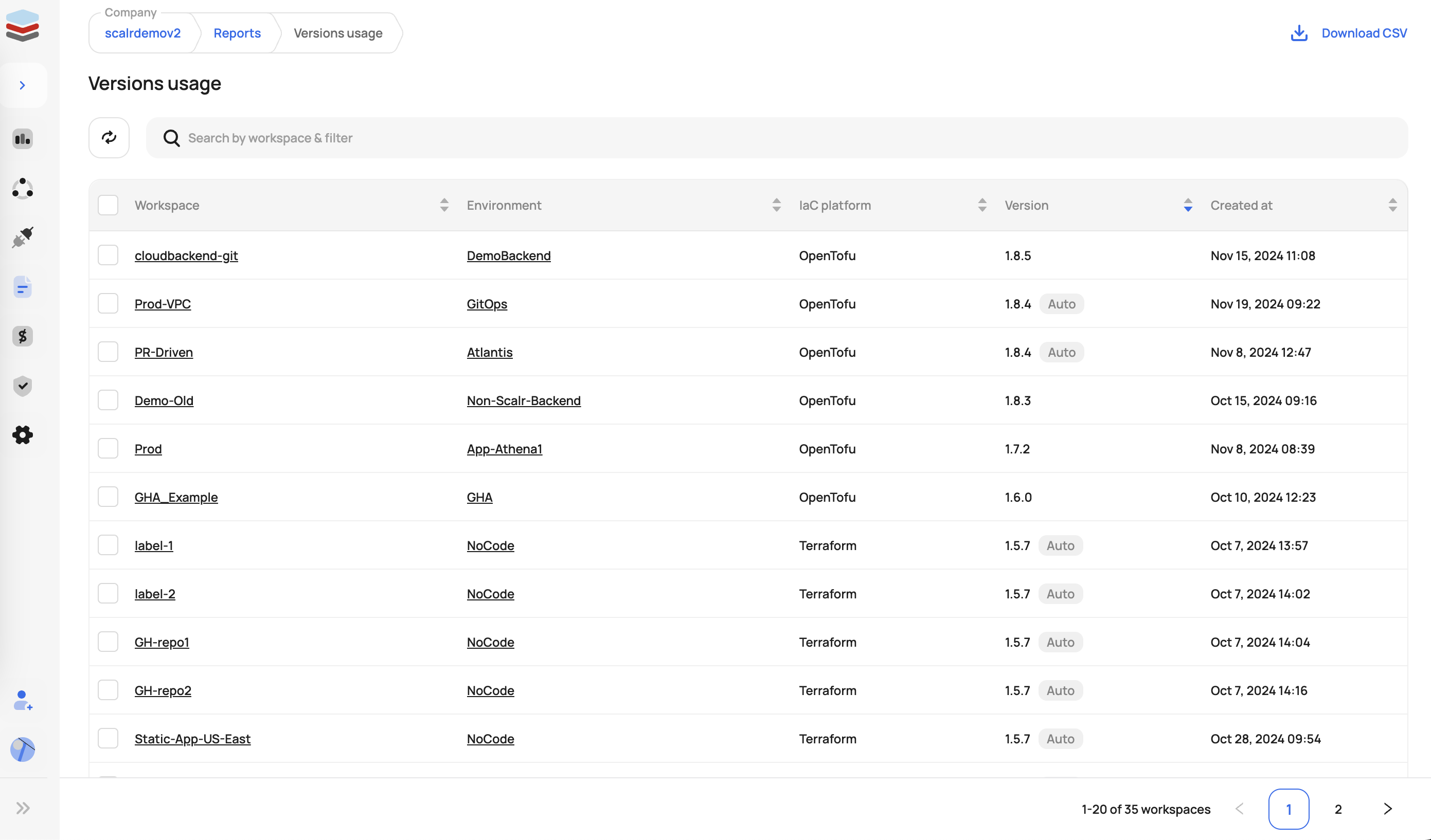
Update & Test Versions
You can also automatically update the Terraform and OpenTofu versions used in workspaces directly from this report by clicking on the workspaces and selecting update version:
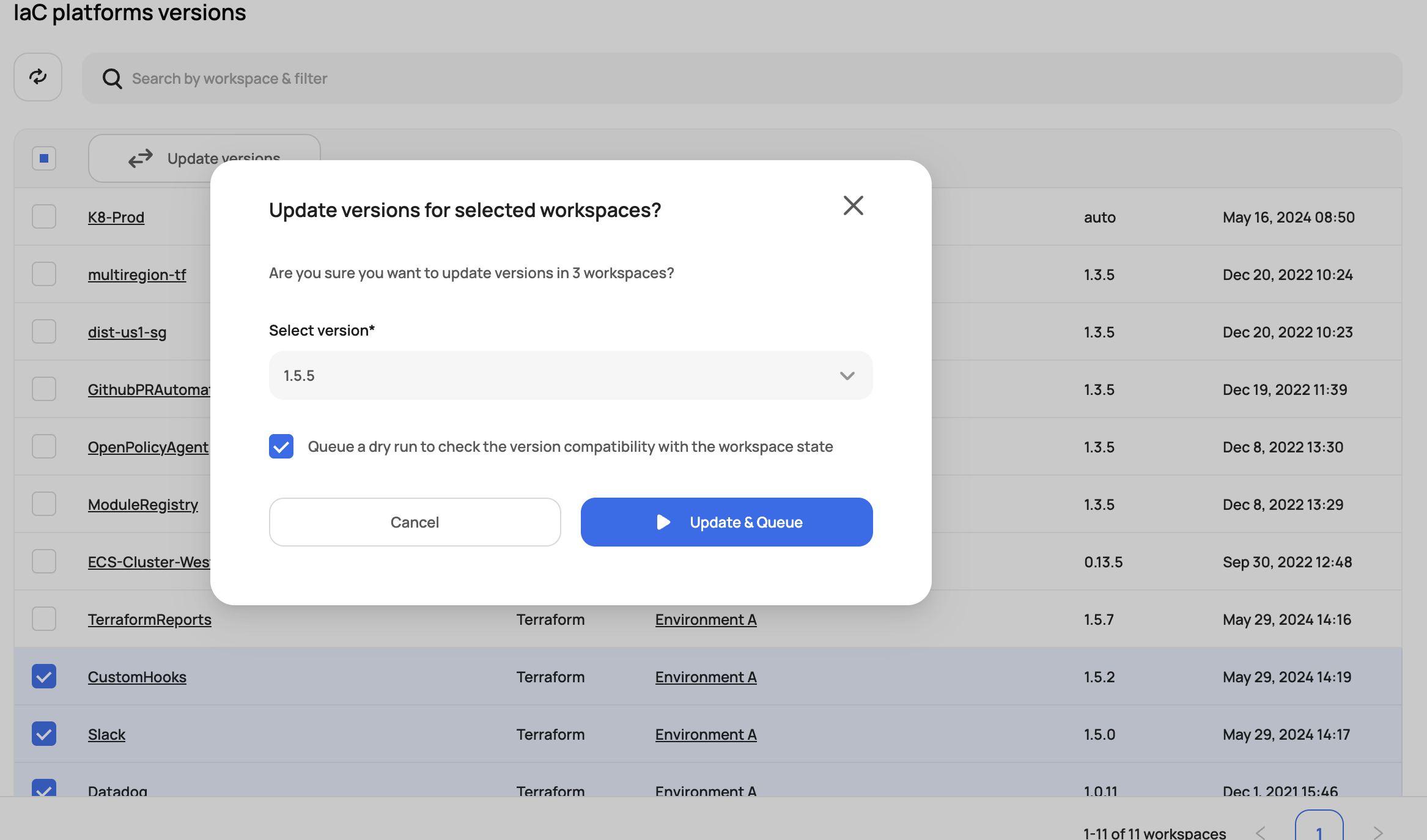
Scalr will automatically execute a dry run and redirect you to to the runs page if you choose to check the compatibility. The permission workspaces:update is required to update the Terraform or Tofu version.
Terraform & OpenTofu Modules Report
The Terraform modules' report shows you the modules and their versions from the remote source (module registry or git) that are being used across all of your workspaces in the account. You will also see the source of the module to make sure that all workspaces are pulling from an approved source.
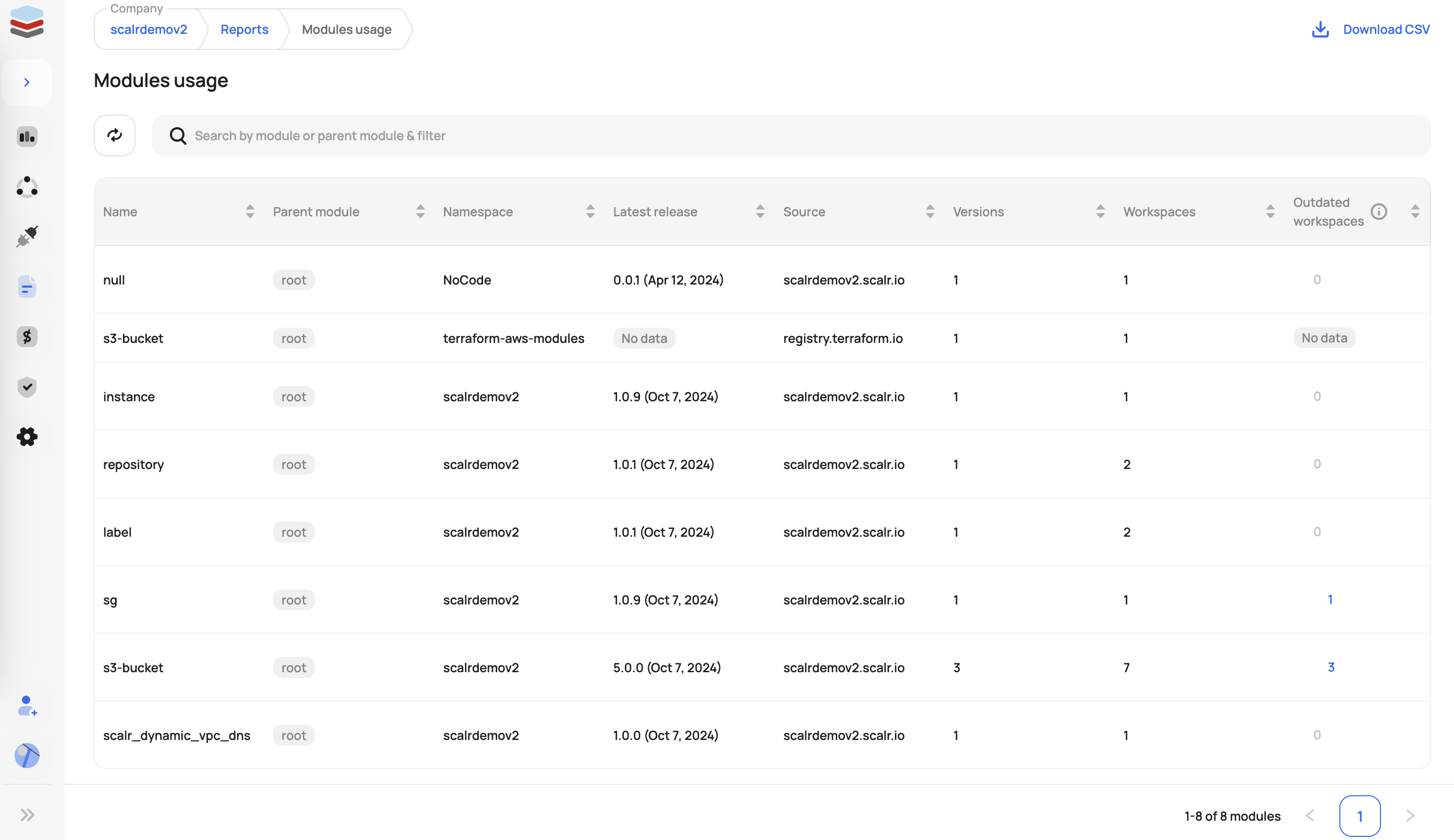
Lastly, identify workspaces that are using old modules with the outdated workspaces column/filter.

Terraform & OpenTofu Providers Report
The Terraform providers' report shows you the providers and their versions from the remote source (module registry or git) that are being used across all of your workspaces in the account. You will also see the source of the provider to make sure that all workspaces are pulled from an approved source.
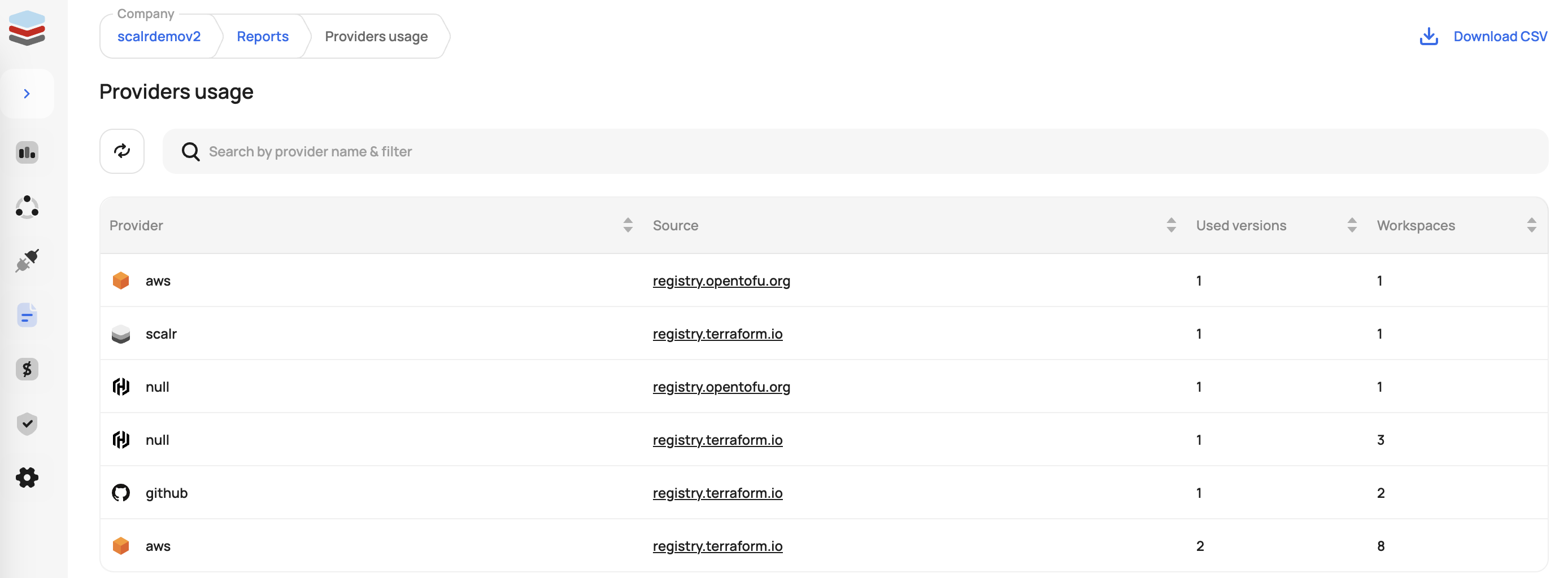
Terraform & OpenTofu Resources Report
Stop digging through workspaces to find resources, the resource report provides valuable information about the state and configuration of all of your resources under Terraform management. Located at the account scope, the report aggregates all resources across all Terraform state files and displays them in a single dashboard. Not only does it show active resources, but also recently deleted resources to help with troubleshooting. Quickly view who created, changed, or deleted a resource and which run performed the action.

Click on resources to dig deeper with the ability to view the run and state file associated with a resource:
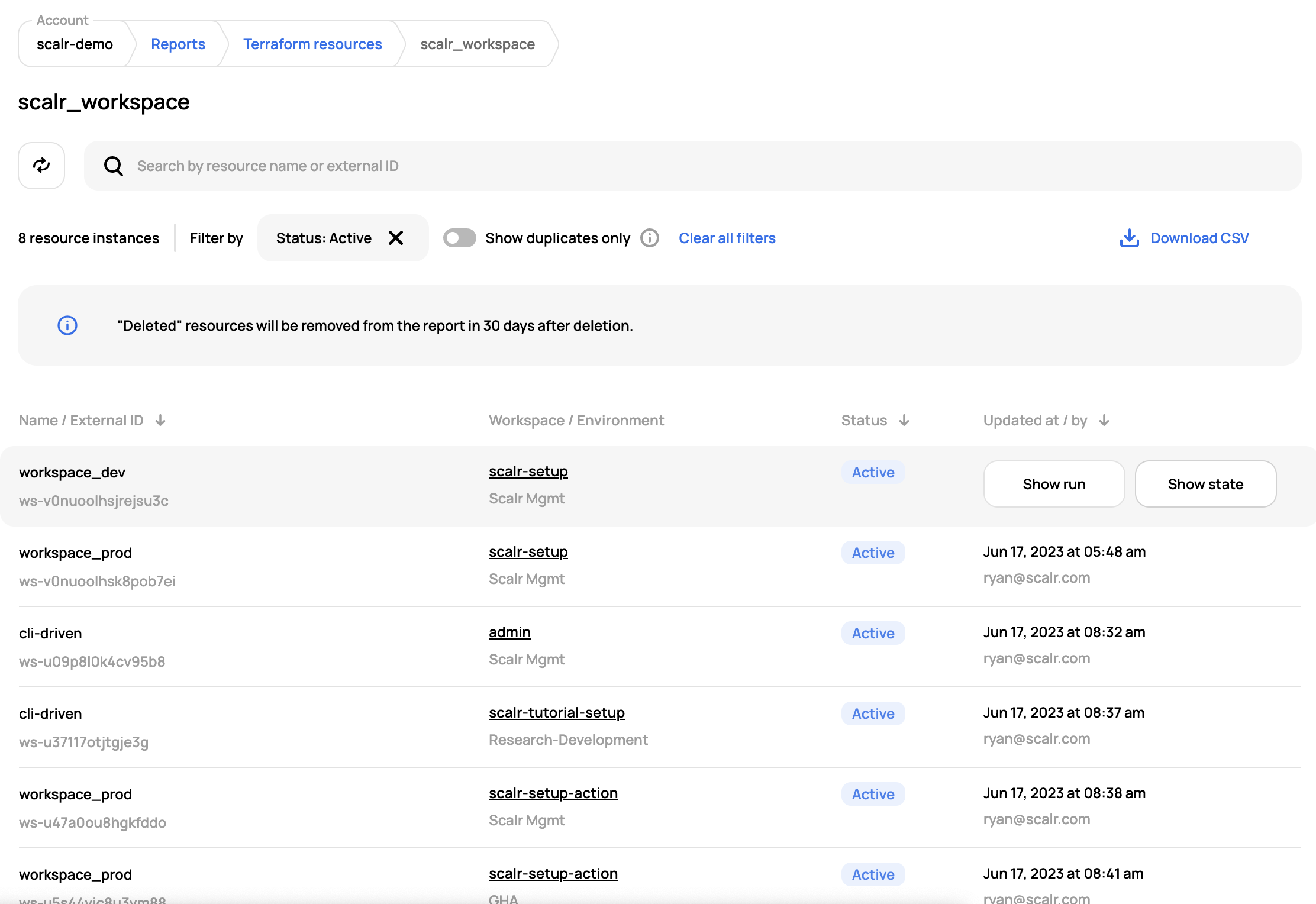
Stale Workspaces Report
When deploying resources with Terraform or OpenTofu you likely want to regularly execute runs in workspaces to ensure your resources are up to date and have not drifted. The stale workspace report will list workspaces that have active resources in state and that have not executed a run in the timeframe that is specified.
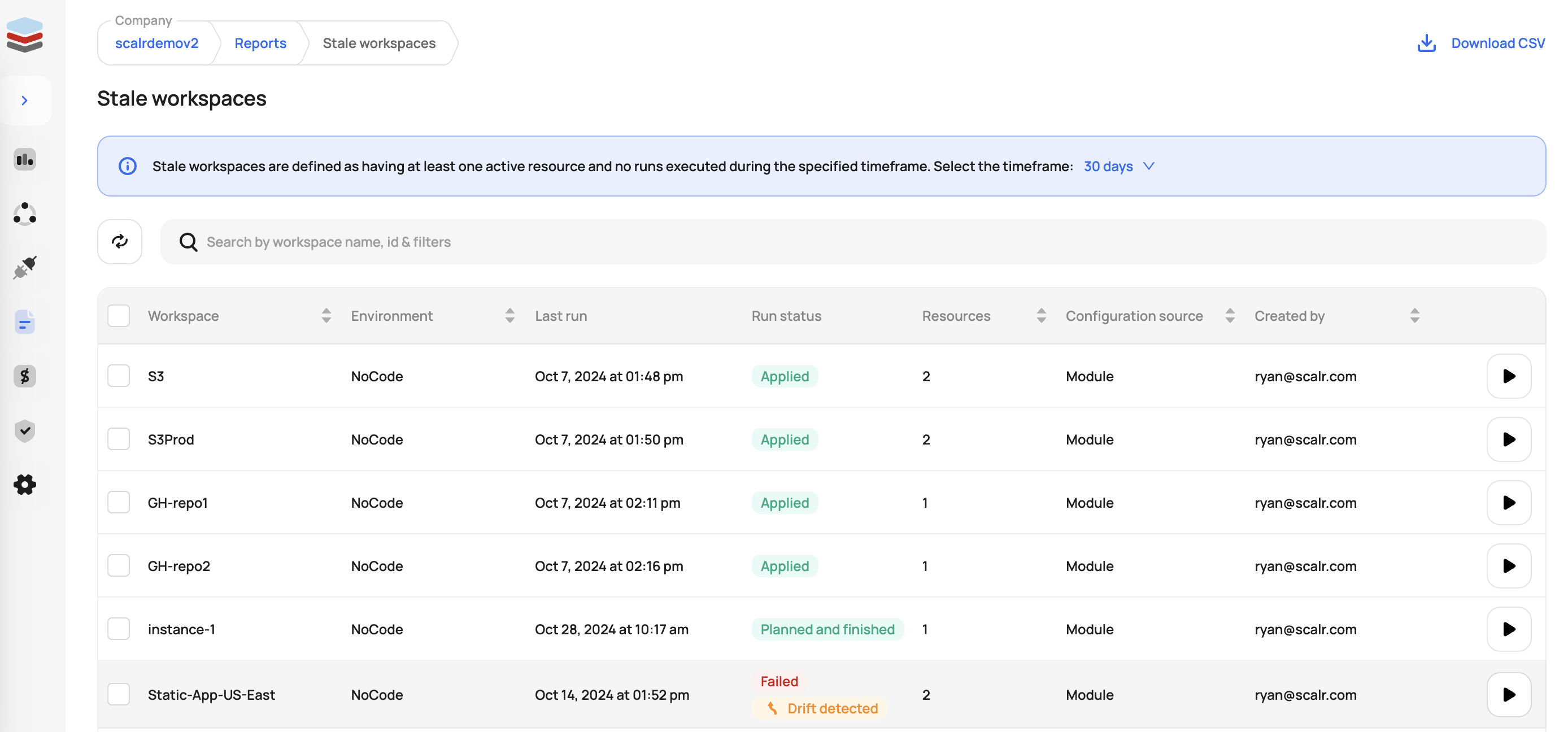
To avoid having to take multiple steps to trigger runs in stale workspaces, you can trigger the runs directory from the stale workspace report to ensure workspaces are up to date.
Drift Report
Drift reports can be seen within the environment scope reports. The drift detection report shows when the last time the drift was checked, the next scheduled drift check, and the current status. Users can then take action on the drift directly from the report. Click here to learn more about how to schedule drift.
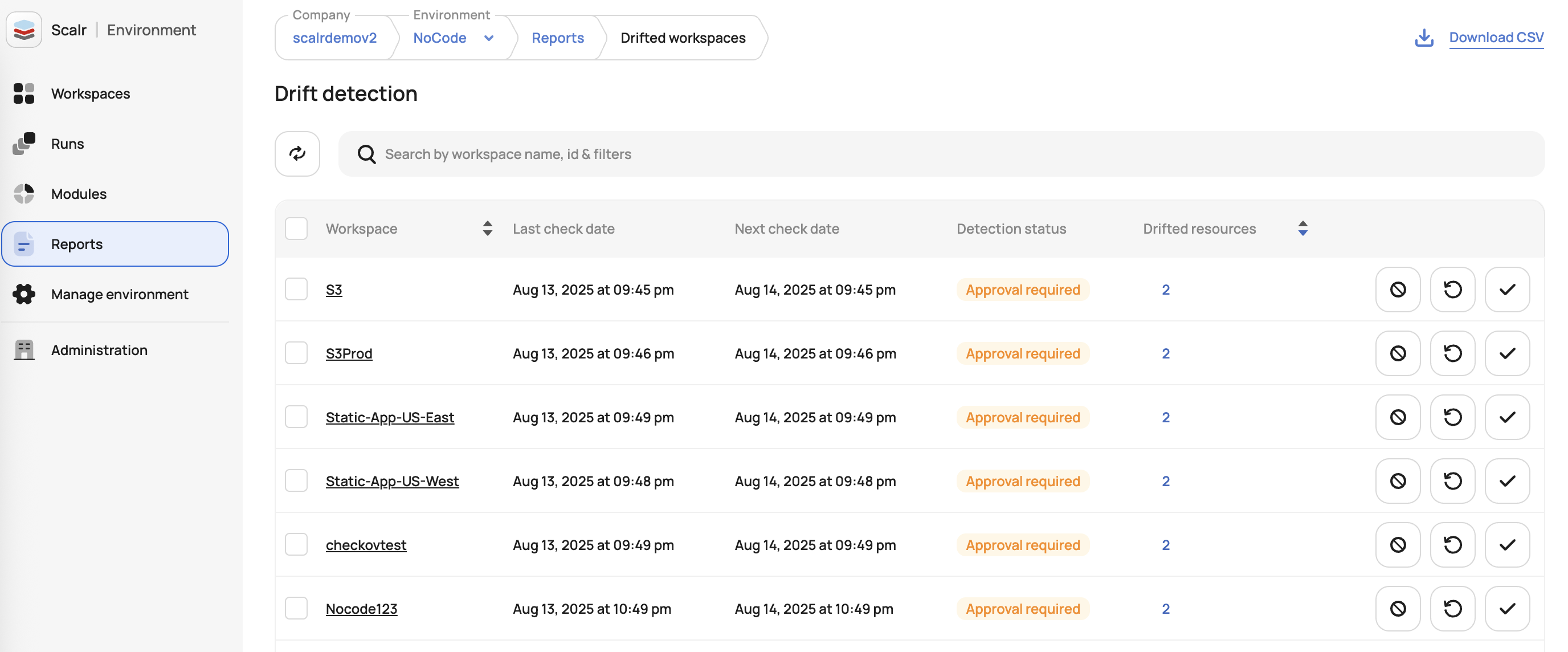
API Tokens report
The API tokens report helps administrators identify tokens that have not been rotated or that have never been used. Rotating keys regularly is considered a best practice in protecting unauthorized access to Scalr:
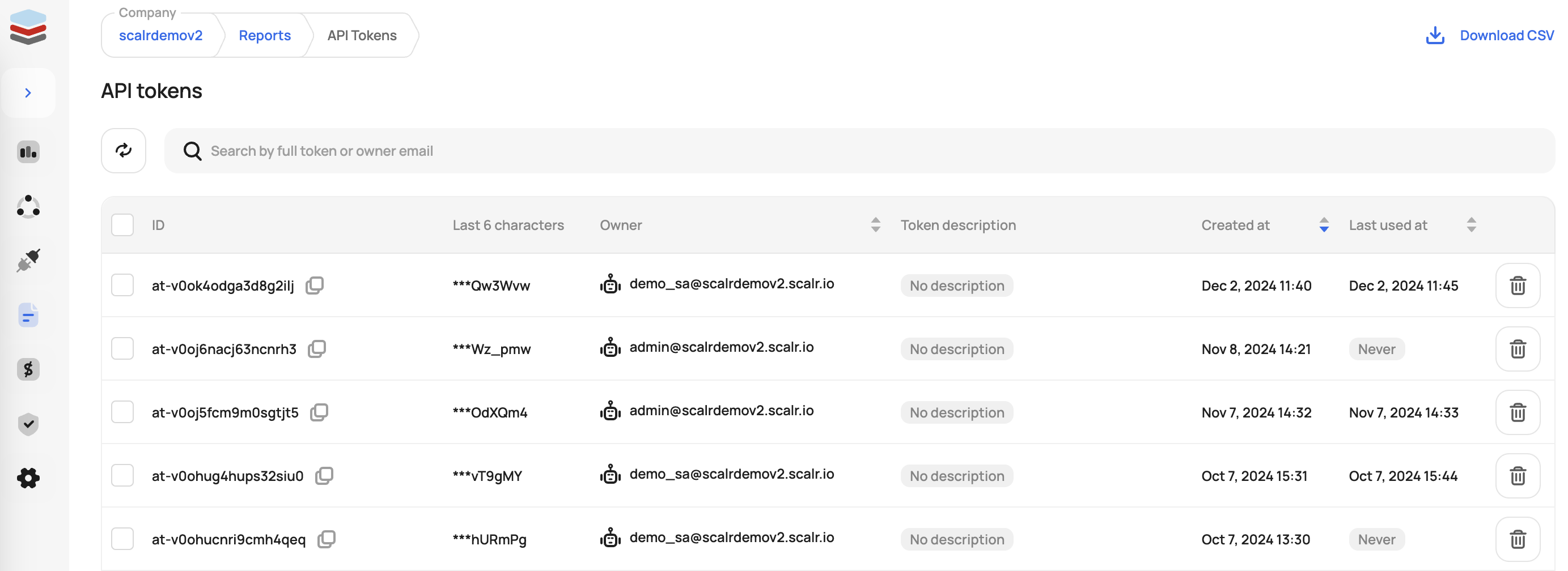
Billing
The billing report will show your Scalr usage and break it down by Environment and Workspace. The run counts that are shown in the report are only those that you are billed for and exclude any runs that Scalr does not charge for.
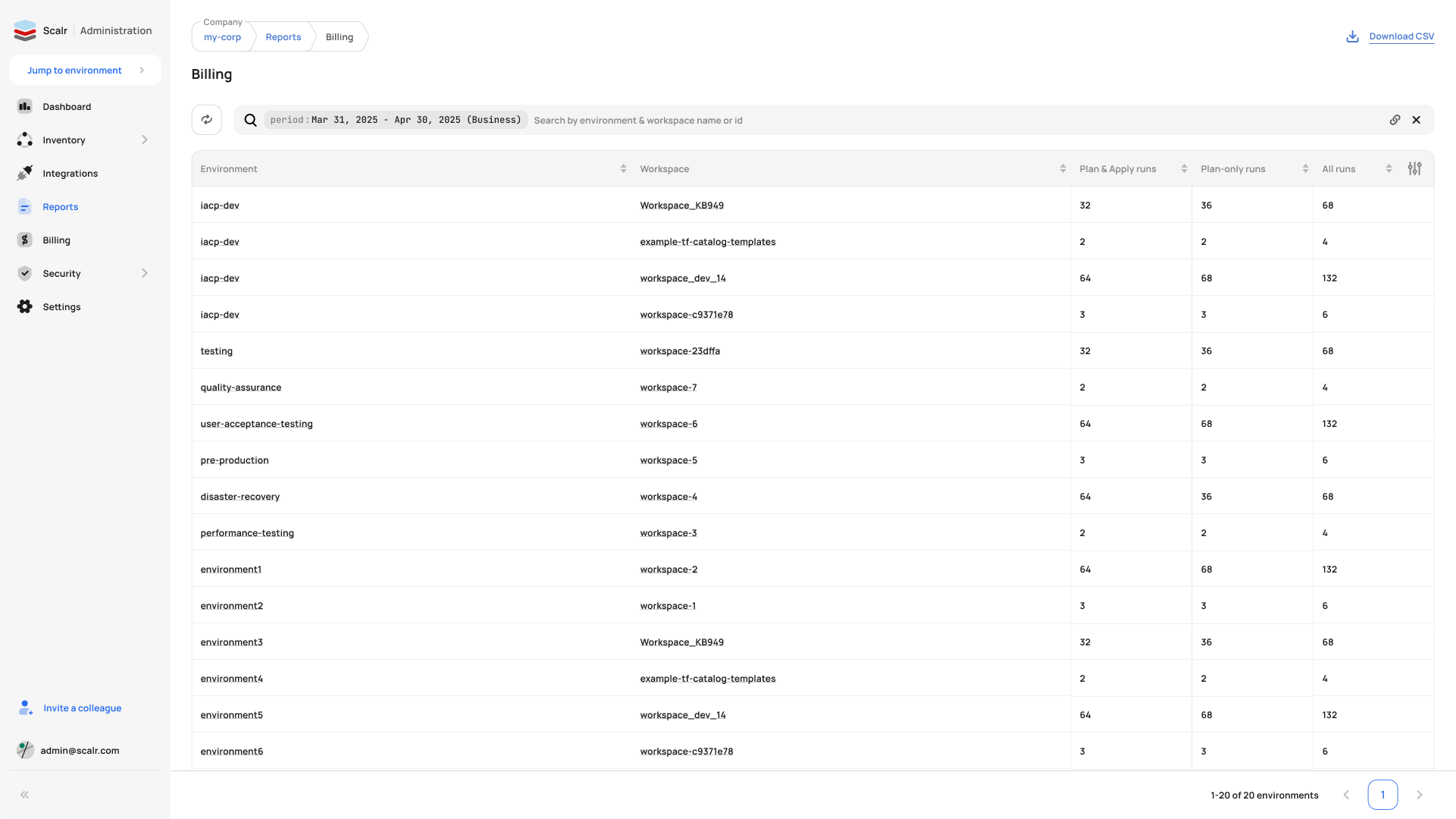
AI Audit Log
Note: This is included in the enterprise plan. Contact support if you have any questions.
AI Usage Audit Logging provides complete transparency and auditability for all interactions with Scalr AI. This feature automatically captures and stores immutable records of AI usage, enabling organizations to maintain compliance, perform security audits, and confidently adopt AI-assisted infrastructure management in regulated environments.
When a user interacts with Scalr AI, the system automatically records:
- Timestamp of the interaction
- User identity and associated workspace
- Type of AI operation performed
- Data context provided to the AI
- AI response summary
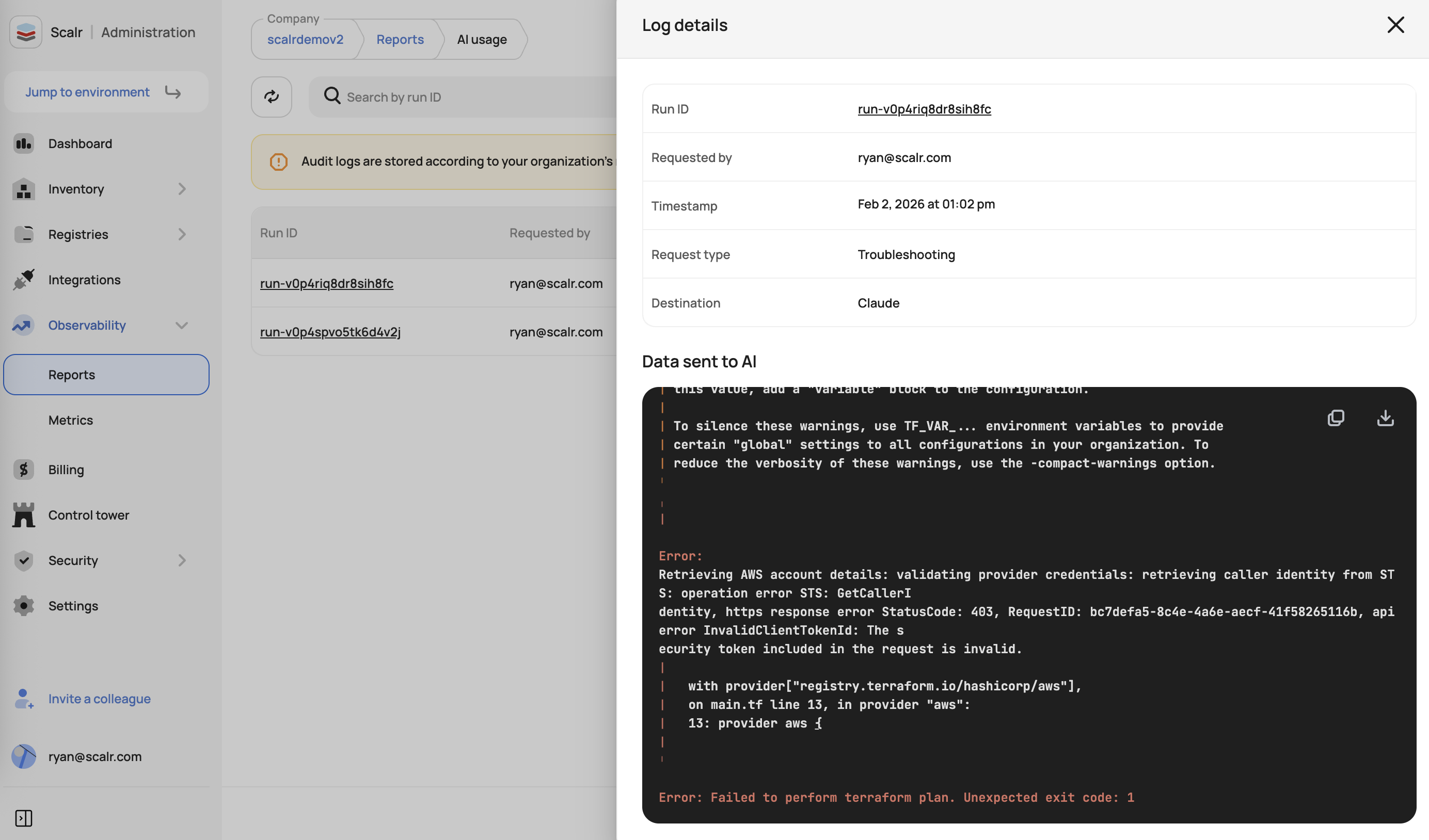
Updated 16 days ago
